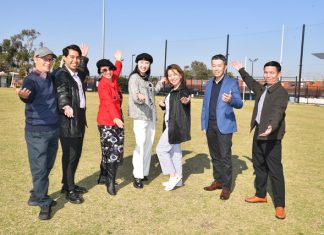Brimbank council has requested a meeting with state Sports Minister John Eren in a push to get more cash for local sports facilities.
The council wants the state government to level the playing field when it comes to funding sport- recreation facilities and health initiatives in its area.
In a submission to a government
Valuing Sport and Recreation discussion paper, the council outlined Brimbank’s poor health record and called for increased investment to turn the tide.
Brimbank has a high rate of diabetes (63 per cent above the national rate) and a high level of obesity in women (one in three adult women is considered ‘obese’).
It also has a general lack of infrastructure for community sport with 3.1 facilities per 10,000 people, compared to 5.7 facilities per 10,000 across Melbourne.
Community wellbeing director Kath Brackett said Brimbank’s health struggles needed to be addressed. “Brimbank is the second most socio- economically disadvantaged municipality in the Greater Melbourne area and the third-most- disadvantaged in Victoria,” Ms Brackett said.
“There is a heavy reliance on local government to provide and maintain sport and recreation facilities with limited financial capacity.
“Council’s hope is that the state government will respond to this submission with local investment to address local need.”
The council currently manages 49 sports pavilions and 147 playing surfaces used by 79 sports clubs across 23 sports.
The council adopted a 10-year Sports Facility Development Plan in 2012 and has since invested $23 million in sport and recreation facilities in the area.
But it stressed that without increased investment from the state government the long-term issues would continue to have a detrimental effect on the health of the community.
“Council’s submission outlines the need for the state government to invest in long-term interventions in disadvantaged communities like Brimbank [which are] facing significant health, wellbeing and social issues. Sport and recreation are a tool to support change,” Ms Brackett said.
“We are also urging more funding to support sports clubs and community organisations to encourage inclusiveness and universal access to sport and recreation programs, and reduce barriers to community participation.”
The council has also called for profits from major sporting events to be redirected back to grassroots participation programs. And it wants the state government to prioritise investment in fringe sports that may not receive the high sponsorship dollars of more high-profile sports.







